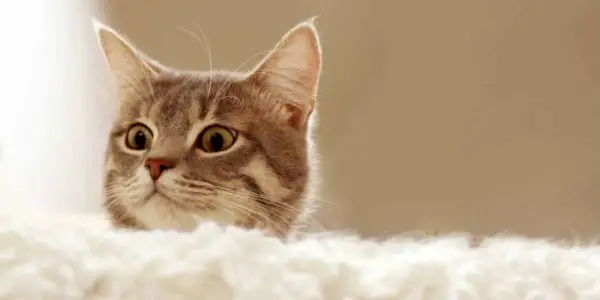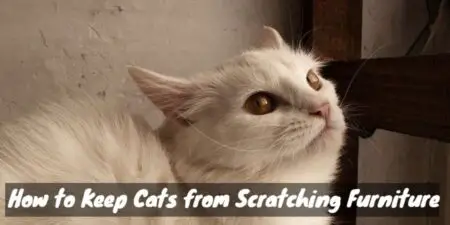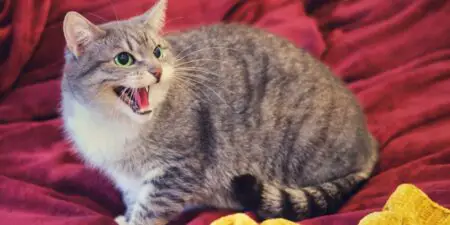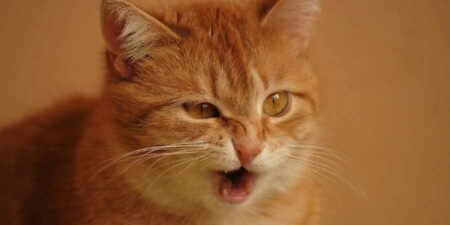Cats are amazingly mysterious, especially when it comes to their moods, or shall we say their mood swings. One minute they’re cuddling you and desirous of attention, and the next, they’re hissing, scratching, and ignoring you.
Temperamental is a major understatement when it comes to describing nearly every domestic cat. But … can cats be bipolar? Due to their normal, ever-changing temperaments, bipolar disorder in felines is far from common and one of the hardest illnesses to diagnose in a cat.
What is Bipolar Disorder?
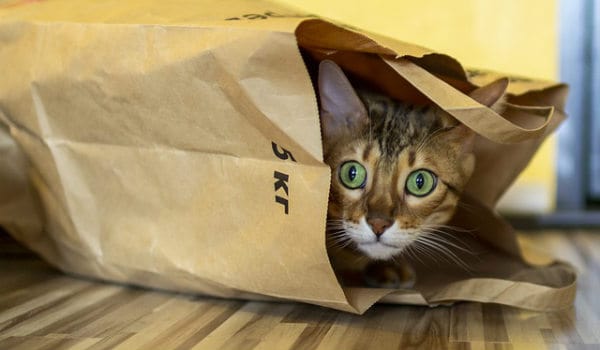
In humans, bipolar disorder, formerly known as manic depression, is a serious mental condition that affects the brain. It causes severe back-and-forth mood swings, resulting in deep, dark lows to the most unrestrained or manic highs.
In a depressive state, humans sometimes consider suicide, while during a manic state, humans may experience extreme energy and loss of concentration. Fortunately, bipolar disorder is treatable so that humans can live a normal life without these extreme mood swings.
Unfortunately, felines exhibit these mood swings as a natural part of their makeup, so diagnosing a cat as bipolar is difficult and rare. It’s simply in their nature to be moody and temperamental, with highs and lows throughout the day.
It’s also possible that your cat is merely imitating your behavior, adapting their daily routines to yours.
[amazon bestseller=”cat dry food”]
Imitation is the Highest Form of Flattery
University of Messina’s Faculty of Veterinary Medicine conducted a study of cats and their behaviors relative to their owners. The study found that indoor cats that spent most of their time close to their owners developed lifestyles that mimicked them (their owners).
Cats are very intelligent creatures. They quickly learn where their owners keep their food, where they should eat, where their litter box is, and when it’s time to sleep. It’s rather natural that a cat also follows her owners into the bathroom and waits while they shower, or sits outside the bathroom door until her owner comes out.
If felines have this much intelligence to copy their owner’s behaviors, it’s common that cats may imitate their owner’s personalities and other behaviors too.
However, if your cat acts weird or she exhibits behavior out of the norm, there may be a medical reason for her mood changes not related to bipolar disorder.
Medical Conditions That Cause Neurotic Behavior
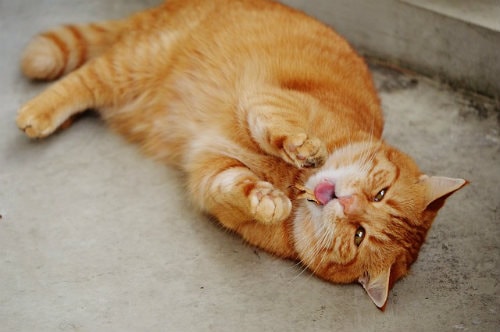
A few feline medical conditions express themselves in a variety of seemingly neurotic behavior. If you notice abnormal changes in your cat, mention them to the veterinarian at her next checkup.
Feline Thyroid Issues
Felines with hyperthyroidism experience nervous anxiety just as humans might. The underlying cause of this condition is due to the excessive release of thyroid hormones. You may not notice any changes in your cat right away, but left untreated, she could have an increased appetite and hyperactivity, weight loss, vomiting, panting, or diarrhea.
Aging Brains and Cognitive Issues
If your cat is over ten years old, you may start seeing signs of cognitive dysfunction. If your young cat shows any of these signs, she may have a neurological disorder, and you should take her to the vet for a checkup.
Some of the symptoms of a cognitive condition include:
- Staring at walls or into space for long periods of time
- No interest in playful activities
- Change in sleep cycles
- Lack of interest in playing
- Altered cycles of sleep and wakefulness
- Disorientation and confusion about her surroundings
- No interest in her food or water
- Missing the litter box and going outside of it
- Lethargy and exorbitant periods of sleep
- Loud meowing or other vocal noises for no apparent reason
- Feline Obsessive Compulsive Disorder (OCD) or Depression
Some cats develop mental health problems not related to bipolar disorder including OCD and depression.
Obsessive Compulsive Disorder (OCD)

OCD in cats is similar to OCD in humans where they repeat their actions for no apparent reason. Over time, the repetitive behaviors become habits without cause; however, the actions may be their way of dealing with any stress or anxiety they’re experiencing.
If your cat exhibits any of these repetitive behaviors, she may have OCD:
- Pacing back and forth
- Continuous meowing or other vocal noises
- Excessive grooming
- Chewing or eating fabric, like pillows or upholstery
- Depression
Loneliness is one of the main causes of depression in felines, especially if her owners leave the house frequently.
If you notice any of these symptoms, you may have a depressed cat:
- Personality changes
- Decreased grooming
- She’s lazy or aggravated
- She stays hidden for long periods
- Excessive sleeping
If you work long hours or aren’t home a lot and you start seeing signs of OCD or depression in your cat, there are things you can do to ease her anxiety or loneliness.
Leave the TV on while you’re away. Cats actually like watching TV as it makes them feel like they have some company while home alone.
If it’s possible, bring another cat or dog into your home so your pets have a friend to keep them company.
Give your furry friend some extra love and attention when you’re home so she knows you love her.
Is Your Cat Normal or Bipolar?
First, what is normal? Cats have so many unusual quirks and eccentricities that it’s hard to describe any feline as “normal.” Different feline breeds have different traits as well, and no two cats in the same breed are even the same.
Also, quirky or neurotic behaviors in humans are simply natural behaviors in felines. As an example, cats love to scratch and chew. It is part of their nature. However, you do not want them scratching your furniture or chewing up houseplants which could be harmful.
Consequently, you buy them scratching posts and train them to scratch those. You should also be aware of the varieties of houseplants that are poisonous to felines and avoid having them inside your home.
Instinctive Natural Feline Behavior
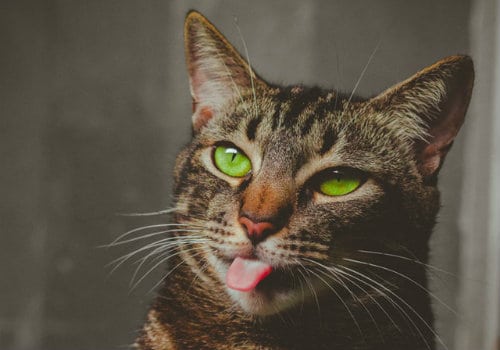
Identifying and diagnosing a legitimate feline bipolar disorder take keen observation of your cat’s daily behavior. Subtle changes are fast, frequent, and common in cats. It’s just in their nature. The degree to which they change is important, so you must be especially observant.
Normal, small changes in behavior have an underlying cause. For example, you bring something new into your home like another pet or a baby or someone new moves in. These changes in her environment may cause changes in her routine that may affect her behavior.
However, with bipolar disorder, the reason for changes in her behavior isn’t always recognizable or identified at all, which makes diagnosing the illness so difficult.
The most often observed indications that your cat may be bipolar include:
- Aggression. They seem to fight with their toys instead of playing with them. They’re easily angered if you don’t feed them on their schedule. Uncharacteristic attacks while you’re petting them.
- Extreme and Unjustified Jealousy. While felines are jealous by nature, if they express their jealousy by loud meowing and hissing or they lash out and scratch you, it is an issue.
- Aberrant Patterns of Sleep. Cats adopt regular sleeping habits, sleeping at the same times and places as normal behavior. Conversely, there is no regular pattern of sleep with a bipolar cat.
- Unwarranted, Extreme Energy After Eating. Normal cats play after they eat. Bipolar cats, however, seem crazed after a meal, as if they’ve overdosed on catnip. She may frantically run around, hiss at things, or worse, destroy furniture or other objects.
- Disturbing Litter Box Behaviors. Not only disturbing but also unsanitary, a bipolar cat may go in and out of her litter box and drag out waste onto the floor. She may dig at the little excessively, kicking it outside of the box or growling at the litter while she’s using it.
Can You Avoid Feline Bipolar Disorders?
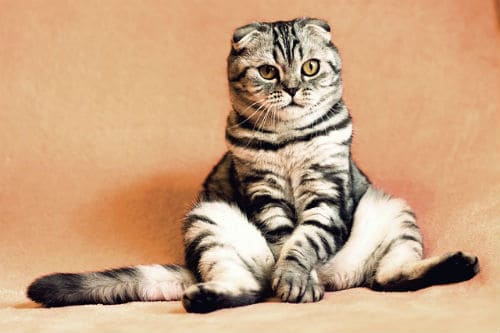
Unfortunately, there are no preventions to the illness. Like in humans, science does not completely understand this condition. The disorder affects the brain due to a chemical imbalance; however, the cause of the imbalance is still unknown.
It is treatable, however, and your vet can help.
Treatments for Bipolar in Cats
Treatment for feline bipolar varies depending on the severity of the condition in your cat. The first line of treatment is giving your cat medication such as small doses of Prozac. You should never give your cat Prozac without first consulting the vet. The dosage is much smaller than what humans take, and it may depend on the size and age of your cat.
[amazon bestseller=”prozac for cats”]
If you’re not comfortable giving your cat oral medications, you may be able to give it to them in their food. If your cat’s condition is severe, your Vet can give you suggestions to make sure your cat gets the medication on the dosing schedule.
Behavioral therapy is another option for treating feline bipolar. Again, your veterinarian or a recommended professional can help devise a plan or schedule to assist with behavioral changes.
Sometimes, however, it’s necessary to combine prescription medications with behavioral therapy for the quickest and most successful treatment.
Bipolar Cat (Video)
"In ancient times cats were worshipped as gods; they have not forgotten this."
-- Terry Pratchett

